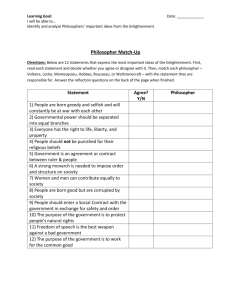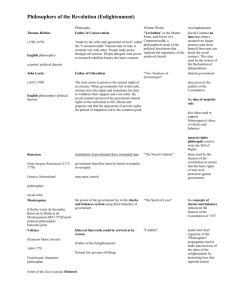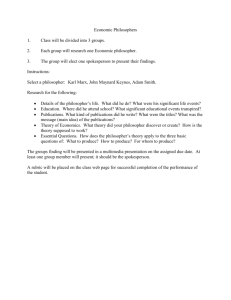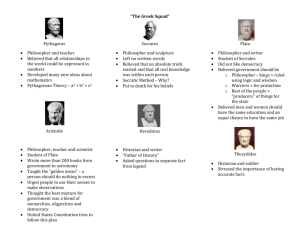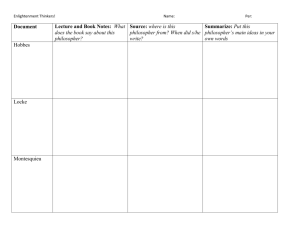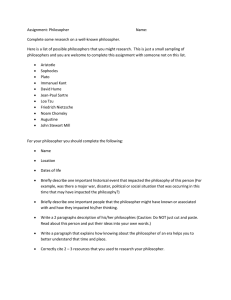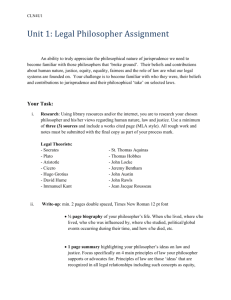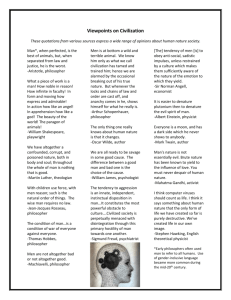Enlightenment and Historic Documents Name Date
advertisement
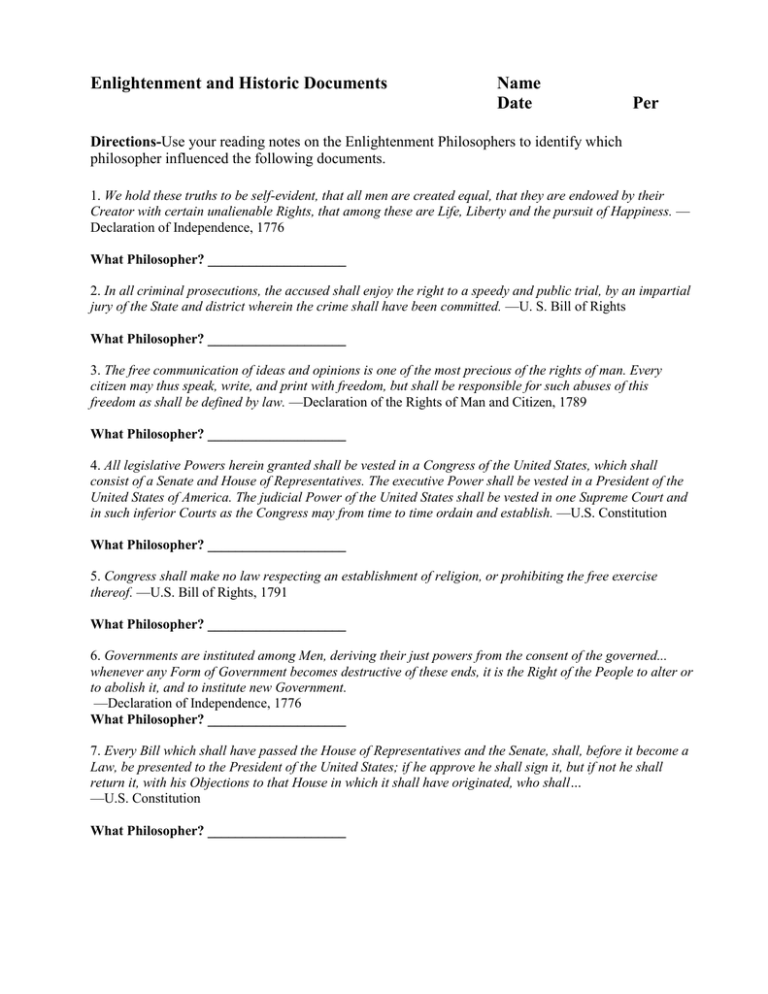
Enlightenment and Historic Documents Name Date Per Directions-Use your reading notes on the Enlightenment Philosophers to identify which philosopher influenced the following documents. 1. We hold these truths to be self-evident, that all men are created equal, that they are endowed by their Creator with certain unalienable Rights, that among these are Life, Liberty and the pursuit of Happiness. — Declaration of Independence, 1776 What Philosopher? ____________________ 2. In all criminal prosecutions, the accused shall enjoy the right to a speedy and public trial, by an impartial jury of the State and district wherein the crime shall have been committed. —U. S. Bill of Rights What Philosopher? ____________________ 3. The free communication of ideas and opinions is one of the most precious of the rights of man. Every citizen may thus speak, write, and print with freedom, but shall be responsible for such abuses of this freedom as shall be defined by law. —Declaration of the Rights of Man and Citizen, 1789 What Philosopher? ____________________ 4. All legislative Powers herein granted shall be vested in a Congress of the United States, which shall consist of a Senate and House of Representatives. The executive Power shall be vested in a President of the United States of America. The judicial Power of the United States shall be vested in one Supreme Court and in such inferior Courts as the Congress may from time to time ordain and establish. —U.S. Constitution What Philosopher? ____________________ 5. Congress shall make no law respecting an establishment of religion, or prohibiting the free exercise thereof. —U.S. Bill of Rights, 1791 What Philosopher? ____________________ 6. Governments are instituted among Men, deriving their just powers from the consent of the governed... whenever any Form of Government becomes destructive of these ends, it is the Right of the People to alter or to abolish it, and to institute new Government. —Declaration of Independence, 1776 What Philosopher? ____________________ 7. Every Bill which shall have passed the House of Representatives and the Senate, shall, before it become a Law, be presented to the President of the United States; if he approve he shall sign it, but if not he shall return it, with his Objections to that House in which it shall have originated, who shall… —U.S. Constitution What Philosopher? ____________________ Read the following section and answer the questions below.
